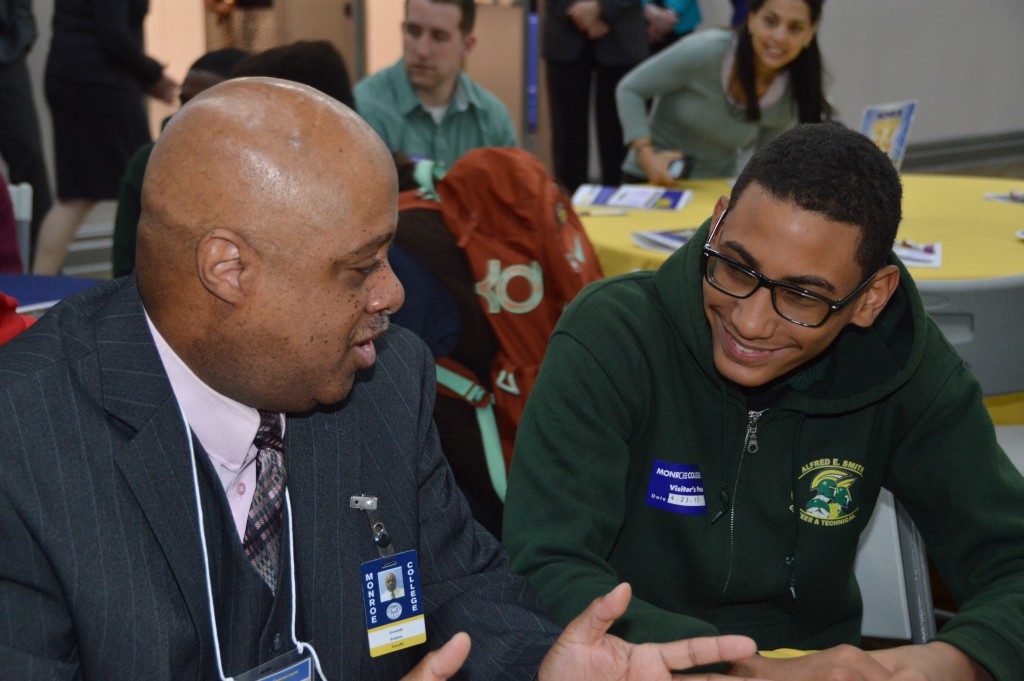
By JASMINE GOMEZ
In a borough where 26 percent of people aged 18 to 24 have no high school diploma, a number of professionals sat at round tables at Monroe College’s Mintz Auditorium hoping to increase those numbers.
At each round-table an intimate discussion went on, with topics ranging from scholastic endeavors, what it takes to one day be a dad, and relationships.
It’s a conversation hosted by Monroe College, with support from the AimHigh Empowerment Institute, a group that steers a young man’s path towards a successful track. Dubbed the Male Empowerment Seminar, the event on April 23 aimed to motivate male teens on the importance of being a man. The talk centered around the three pillars of the program, “competence, confidence, and character.”
At the tail end of the event, first-year students at Monroe College and professional men from various backgrounds sat with the students. Among the guests, and speakers, was veteran journalist Maurice Dubois, who reflected on his path to becoming a well-known broadcaster while uttering the mantra that “grit” and determination will also drive young men to their goals.
It’s an overarching aim for the program, intended to “break all the stereotypes about minorities in our community,” according to Dr. Cecil Wright, who doubles as founder the program and Director of Admissions at Monroe College.
“[The program] allows high school boys to be exposed to mentors who come from neighborhoods like them who are now successful,” said Wright.
Throughout its history, the program has found that building a teen’s confidence can be a significant barrier when transitioning teen boys to men.
“They didn’t believe in themselves. We found that a lot of them thought that their geography was going to write their biography because they lived in certain areas,” said Sherman Browne, Chief Empowerment Officer for the AimHigh Institute.
The program currently targets college and high school young men. But program organizers look to have the program eventually resemble the anatomy of a tree branch, with professional men mentoring college men, college men mentoring high school boys, and high school boys mentoring middle schoolers.
Wright and Browne hope to see the program instituted at every level of the educational pipeline in order to dismantle the school to prison pipeline, one of the main goals of the program.
Aside from a day of male empowerment, students and mentors meet every Tuesday and Thursday throughout the year to work on their three responsibilities as a part of the program–a social component, such as community service, professional development, and life skills, such as a physical activity.
The program has already seen positive results, noting a 98 percent retention rate of them continuing past their first year of college.
Organizers are looking to change the current format of the event into a two-day event next year due to space issues as the empowerment seminar seems to grow bigger and bigger every year.




